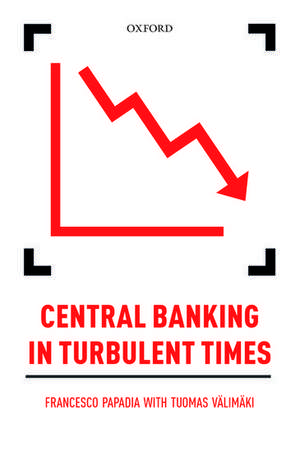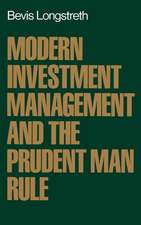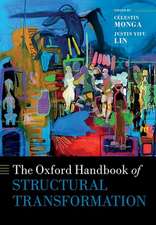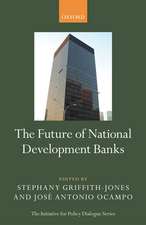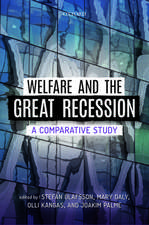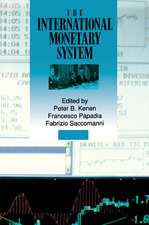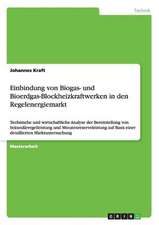Central Banking in Turbulent Times
Autor Francesco Papadia, Tuomas Välimäkien Limba Engleză Hardback – 15 mar 2018
Preț: 548.80 lei
Preț vechi: 784.04 lei
-30% Nou
Puncte Express: 823
Preț estimativ în valută:
105.05€ • 114.14$ • 88.30£
105.05€ • 114.14$ • 88.30£
Carte tipărită la comandă
Livrare economică 10-16 aprilie
Preluare comenzi: 021 569.72.76
Specificații
ISBN-13: 9780198806196
ISBN-10: 0198806191
Pagini: 348
Dimensiuni: 163 x 237 x 25 mm
Greutate: 0.69 kg
Editura: OUP OXFORD
Colecția OUP Oxford
Locul publicării:Oxford, United Kingdom
ISBN-10: 0198806191
Pagini: 348
Dimensiuni: 163 x 237 x 25 mm
Greutate: 0.69 kg
Editura: OUP OXFORD
Colecția OUP Oxford
Locul publicării:Oxford, United Kingdom
Recenzii
The global financial crisis started a transformation of central banking by showing that the nexus between price stability and financial stability is more complex than was previously understood. In this book, Francesco Papadia and Tuomas VÃlimÃki, not only offer a superb survey of the central banking experience through the crisis, but also identify the most important future challenges to monetary policy. An essential and provocative read to a broad range of audience from policy-makers to market analysts, from scholars to students of economics, to all those who want to deepen their understanding of central banks in the great financial crisis and their challenges thereafter.
Central banking will never be the same after the great financial crisis. We have only begun to see how this long-established institution seeks to adjust to the new environment â an environment that it has done so much to shape. The book offers a unique account of this institutional and intellectual journey by two authors who have lived this extraordinary experience in the trenches and have a deep understanding of the subject. A great read for anyone interested in this defining historical moment.
a book which is detailed and thoughtful enough for the expert while being neither too long nor too heavy for the interested observer...In summary, this is a book which will inevitably be mainly bought by and read by those working in finance. And they, especially central banking practitioners, will derive huge benefit from it. But it deserves a wider audience too; there is much here for the interested generalist, and the conclusions will help shape the world's financial system for many years to come.
Central banking will never be the same after the great financial crisis. We have only begun to see how this long-established institution seeks to adjust to the new environment â an environment that it has done so much to shape. The book offers a unique account of this institutional and intellectual journey by two authors who have lived this extraordinary experience in the trenches and have a deep understanding of the subject. A great read for anyone interested in this defining historical moment.
a book which is detailed and thoughtful enough for the expert while being neither too long nor too heavy for the interested observer...In summary, this is a book which will inevitably be mainly bought by and read by those working in finance. And they, especially central banking practitioners, will derive huge benefit from it. But it deserves a wider audience too; there is much here for the interested generalist, and the conclusions will help shape the world's financial system for many years to come.
Notă biografică
Francesco Papadia has nearly 40 years of central banking experience. Beginning with the founding of the European Central Bank (ECB) in 1998, he served as the Director General for Market Operations until 2012. Prior to that, he held various positions at the Banca d'Italia and was Economic Advisor at the EU Commission. Currently he is Chairman of the Board of the Prime Collateralised Securities, Chair of the Selection Panel of the Hellenic Financial Stability Fund, Senior Resident Fellow at the Bruegel Institute, and a university lecturer.Tuomas Välimäki is the Head of Monetary Policy and Research at the Bank of Finland. As the Bank's Chief Economist, he is a member of the European Central Bank's Monetary Policy Committee. During his two decades as a central banker, he has also worked as a visiting expert at the European Central Bank.
